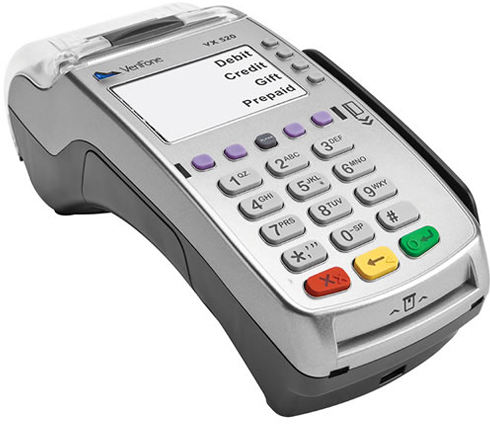Having a merchant credit card account is as important as having a cash register. Merchant credit card accounts allow retailers and other vendors to process credit card transactions. As more and more consumers rely primarily on plastic to make transactions, businesses large and small must adapt to meet customer expectations.
Merchant credit card processors are offered by a variety of companies, and each offers different fee schedules and levels of service. Not all merchant credit card processors are the best fit for individual businesses. When choosing a merchant credit card processor, businesses should carefully consider their individual characteristics and pick the account that best suits them.
Plastic Rising
Credit and debit cards have rapidly risen in popularity as consumers’ first choice to pay for transactions. Consumers appear to enjoy the portability, convenience, and security that plastic offers as opposed to cash. The rise of e-commerce has also catapulted plastic into prominence.
According to Javelin Strategy & Research, in 2011 shoppers used plastic credit, debit, and gift cards for about 66 percent of in-person purchases last year. Thirty-one percent of in-person purchases were made with a debit card, 29 percent were made with a credit card, and six percent were made via gift card.
The trend toward using plastic instead of cash is pronounced among younger consumers. According to Bloomberg Businessweek, more than half of adults under 30 prefer to use a credit or debit card to cash, even for purchases under $5.
The number of people using credit and debit cards for everyday transactions necessitates that stores and other businesses must obtain a means to process credit and debit card payments.
Merchant Accounts
Merchant credit card accounts are a type of bank account that enables businesses to take payments from credit, debit, or gift cards. These accounts are set up under contracts between acceptors and merchant acquiring banks to facilitate transactions. A third-party payment processing company may also be involved in the agreement.
Types of Merchant Accounts
Merchant accounts come in various types. They are largely categorized by how goods are sold by the client’s business and the perceived risk to the bank. Here are some general categories of merchant processor accounts:
Traditional Account with Equipment – These accounts are usually employed by grocery, department, and other retail stores that have a high level of point-of-sale transactions. Payment processors will provide the business with equipment used to swipe credit cards and forward information to the merchant credit card processing company. These accounts are considered low-risk by banks, and will enjoy lower rates and fees in many cases.
MOTO – Mail or telephone order accounts allow customers to use their credit cards to make orders via mail or the telephone. These accounts typically don’t require equipment, but are perceived to be higher risk than traditional accounts. As such, their rates may be higher.
E-commerce – These accounts are the most rapidly growing area of merchant account processing as more and more online businesses are launched and as more traditional businesses develop a web presence. E-commerce accounts typically have middle-range accounts and the need for equipment will vary.
Mobile accounts – A growing number of transactions are being made using smartphones and mobile devices. There are a variety of applications that allow business owners to take payment anywhere using their smart phone or mobile device. This is particularly convenient for business owners who are mobile, such as landscapers or plumbers, or those who offer professional services, such as attorneys. The level of fees charged by merchant account processors will largely depend on the nature of the client’s business, as some are considered more risky than others.
Multiple merchant accounts – Some businesses make transactions in-store, over the phone, and via the Internet. These multi-channel merchants require a means of taking all these payments types and processing them. Risk will play a factor in the rates, but in many cases, multiple merchant account holders will find discounts because of the volume of their business.
High risk accounts – Some businesses are considered so risky that few merchant processing companies will touch them. However, there are a hardy few that offer high risk accounts. Some businesses considered to be high risk include casinos, adult sites, travel agencies, and more.
Because of the risk involved, the fees for these accounts will typically be higher.
Choosing an account
When choosing a merchant account, businesses should keep the following in mind:
- What are the fees? Businesses need a clear and unambiguous idea of what the fees associated with their accounts will be. Business owners should inquire about monthly rates, rates based on volume and whether the merchant processing company has a minimum monthly transaction requirement.
- Timeliness. Money doesn’t show up in a company’s account immediately after a transaction. Processing a payment can take several days. Businesses should inquire about turnaround times for processing.
- Equipment. Some payment processing accounts will require special equipment. Businesses should ask about the reliability and compatibility of the equipment, as not all equipment supports Apple Pay and Chip card transactions. Make sure you are using the latest equipment to eliminate security concerns.
- Security. Merchants should be concerned about the security of their customers’ financial information. A breach can be damaging to a company’s reputation, even if the fault lies with the payment processor. Businesses should inquire about the level of security provided by the merchant processing company and breach insurance provided to protect your business.
Payment processing capability is essential to modern business. Business owners need to be aware of the merchant accounts available and how they fit in with their business model. Leap Payments provides a variety of top-rated payment processing solutions along with a transparent pricing model so that you always know what you’re paying for: excellence at every turn.
Sources:
http://www.frbsf.org/cash/cash-how-we-use-it/how-we-use-cash/trends-cash-usage
http://www.businessweek.com/articles/2014-08-27/plastic-beats-cash-among-young-adults
http://www.merchantuniversity.org/getting-started/types-of-merchant-accounts.aspx



